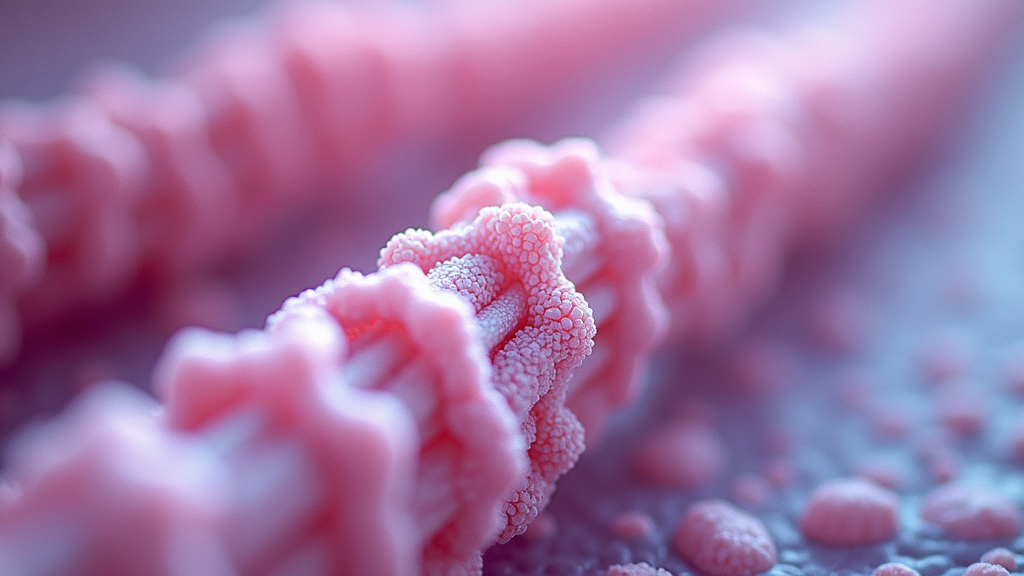Collagen is often talked about when discussing glowing, youthful skin, but there’s a lot more going on behind the scenes. As someone who spends a good chunk of time digging into the science of skin care and aging, I’ve seen just how much collagen shapes our skin’s look and feel. If you’re curious about why collagen matters, how it changes as we age, and what you can do to keep your skin looking and feeling good, this guide breaks it all down in clear, simple terms.

What Is Collagen and Why Does It Matter?
Collagen is a protein your body makes on its own, and it’s basically the stuff that keeps your skin plump, firm, and bouncy. It’s actually the most common protein in our bodies, showing up in skin, hair, nails, bones, and connective tissues. When it comes to your skin, collagen acts sort of like a network of support beams, making sure things stay tight and smooth without sagging. Without enough collagen, things just don’t hold together as well; this is when you start to notice wrinkles or skin that feels less firm.
This protein comes in different types, but type I and III are the big players in your skin. These work together in the deeper layer of your skin, called the dermis, to keep that outer glow showing up strong. Collagen is made of three chains of amino acids wound together into a ropelike structure, and this gives your skin its natural strength and stretch.
How Collagen Changes As You Age
As you get older, collagen production naturally slows down. Your early twenties are actually the high point. After that, your body starts to make less and breaks it down faster. By your 30s and 40s, the effects really start to show up: skin loses some of its bounce, fine lines and deeper wrinkles show up, and you might even notice your skin looks thinner or feels dryer than before.
Several things speed up the loss of collagen, including sun exposure, stress, smoking, and eating a lot of sugar. All these can cause damage to collagen fibers or prevent your skin from repairing itself efficiently. This is why so many antiaging strategies focus on keeping existing collagen safe while also encouraging your skin to make more.
Collagen’s Main Jobs for Healthy Skin
To really see why collagen is so important, it helps to know exactly what it does for your skin day to day.
- Firmness: Collagen acts as the main building block, keeping your skin tight and lifted instead of saggy.
- Elasticity: A healthy amount of collagen lets your skin stretch and then spring back, reducing the look of lines and wrinkles.
- Hydration: Collagen helps your skin hold onto moisture, so you’re less likely to get flakiness or dryness.
- Healing: Wounds, cuts, and scars heal faster when collagen is working well, and you’re left with smoother skin as a result.
Doctors and dermatologists often point to collagen’s role when recommending products or treatments that target antiaging or faster healing. In fact, most of the new skin care trends you see these days, like microneedling or light therapies, are all about getting your skin to make more collagen on its own to keep you looking your best.
Factors That Affect Collagen Production
Keeping your collagen levels up isn’t just about what you put on your skin; it’s also about the choices you make every day. Here are a few things that play a big role in your skin’s collagen balance:
- Sun Exposure: UV rays go straight through the skin and break down collagen faster, causing uneven tone and lines over time.
- Smoking: Cigarettes slow down blood flow and bomb your skin with chemicals that hurt collagen fibers.
- Diet: Eating lots of sugar or highly processed carbs pushes a reaction in your skin that makes collagen fibers stiffer and weaker in the long run.
- Stress: Ongoing stress can raise hormone levels that directly block collagen production.
- Sleep Habits: Your skin works to repair itself at night, including boosting collagen. Patchy sleep can interrupt this process, limiting skin recovery.
A few healthy changes in your habits, like spending less time in direct sun, choosing more whole foods, managing stress, and sleeping well, can make a noticeable difference in how your skin feels and appears. Staying sharp with these choices lays the groundwork for healthy skin.
Top Ways to Support Collagen for Skin Health
While collagen loss is part of the natural aging cycle, there are some straightforward ways to help keep your skin looking as fresh and youthful as possible.
- Sunscreen Use: Daily sunscreen goes a long way in keeping collagen fibers undamaged. Broad spectrum SPF 30 or higher is ideal even on cloudy days.
- Vitamin C Serums: Topical vitamin C can help trigger more collagen production and protect against damage from the environment, making it an easy way to give your skin a boost.
- Healthy Fats: Eating foods like avocados, olive oil, and nuts supports your skin’s barrier and creates the right conditions for collagen to thrive.
- Collagen Supplements: Some studies show that hydrolyzed collagen supplements can improve skin hydration and elasticity. Results aren’t instant, but over 8 to 12 weeks, many people notice smoother skin and smaller lines. Reviewing peerreviewed studies (like this study on collagen peptides) can be helpful if you want to dig deeper.
- Retinoids: Retinol and prescription retinoids speed up cell turnover and signal your skin to make more collagen. They can be strong, so start slow if you’re new to them.
I’ve also noticed that treatments like microneedling and laser therapy, when done safely by a professional, can kickstart new collagen growth for improved firmness and a smoother surface texture overall.
Here is a link for my recommendation of hydrolyzed collagen:
“Here’s a little transparency: Our website contains affiliate links. This means if you click and make a purchase, we may receive a small commission. Don’t worry, there’s no extra cost to you. It’s a simple way you can support our mission to bring you quality content.”
Common Questions About Collagen and Skin Health
Plenty of people ask about collagen, so I’ll tackle some of the most popular questions right here.
How do I know if I’m losing collagen?
Skin that feels thinner, has more fine lines, or starts to sag below the cheeks or chin usually means your collagen is on a decline. Progress happens gradually for everyone, but these are pretty common signs to look out for.
Can I really get more collagen from food?
Amino acids that build collagen show up in foods like chicken, fish, eggs, beans, and dairy. Vitamin C, zinc, and copper are also important for making new collagen, so citrus fruits, nuts, leafy greens, and seeds come in handy. Collagen itself is broken down during digestion, but having these nutrients on your plate keeps production running strong over time.
Are collagen creams effective?
Most collagen molecules in creams are too large to be absorbed directly by the skin. Look for products that boost your skin’s own collagenmaking process, like those with peptides, vitamin C, or retinoids, rather than only relying on topical collagen for results.
How soon will I see changes in my skin after starting supplements or new products?
For most people, results take around 8 to 12 weeks of steady use. Consistency is honestly more important than which brand you pick, so stick with your routine and take progress photos to watch those small improvements add up week after week.
Practical Tips for Keeping Collagen Healthy
Here are a few everyday tips that I find make the biggest difference in skin health over time. Incorporate these habits for longlasting benefits:
- Wear sunscreen every morning, even if you’re inside most of the day or if it’s cloudy.
- Keep your skin moisturized to prevent dehydration and help your natural repair process work at its best.
- Eat proteinrich foods and colorful fruits and veggies for a steady stream of building blocks your skin needs.
- Limit alcohol and processed sugar, which both speed up collagen breakdown and can lead to tiredlooking skin.
- Prioritize regular sleep, since most collagen repair happens at night while you’re resting and recovering.
Small changes, not overnight fixes, add up over months and years. Supporting your collagen through these choices pays off in stronger, healthier skin down the road, making it worth the consistent effort.
What Matters Most for Lasting Skin Health
Staying proactive about collagen isn’t just about fighting signs of aging; it’s also about longterm skin health, from healing minor scrapes to bouncing back from sunburn. Focusing on nutrition, sun safety, and the right products keeps your skin resilient and ready for anything life throws your way. If you’re after real, lasting results, patience and steady care make a bigger impact than any quick fix or trend.
Your skin will change as you go through life, but you can always help it age on your own terms. With the right habits, your collagen can keep up and give you skin that feels as good as it looks for years to come.
